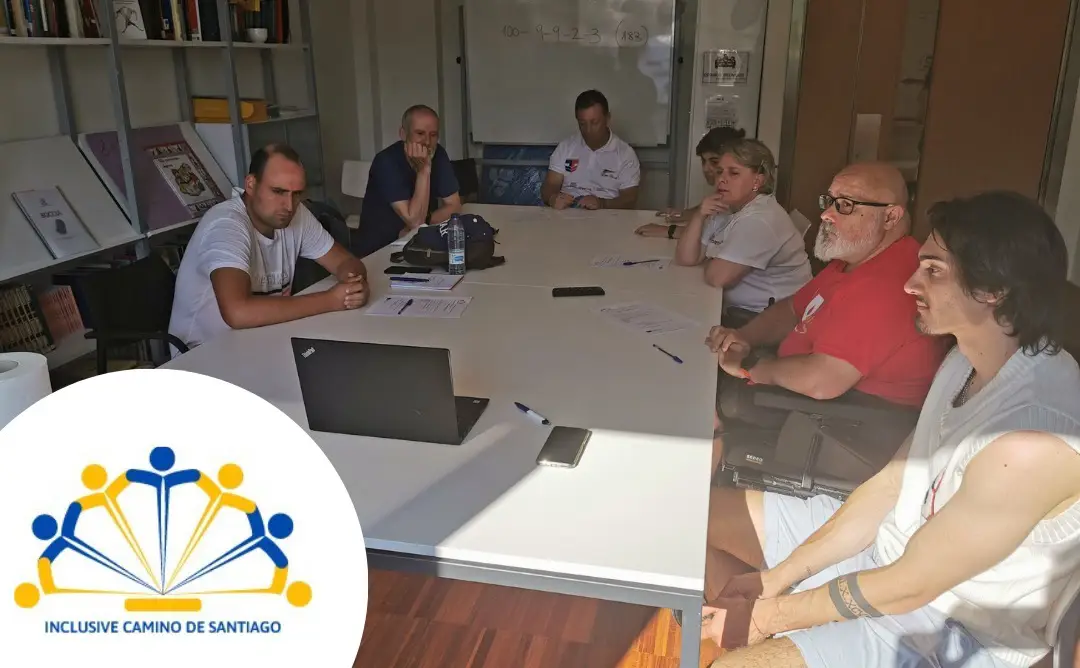
As part of the InCASA project’s commitment to creating a truly inclusive Camino de Santiago, partner organizations conducted focus groups to gather valuable insights from experts and people with disabilities. These focus groups aimed to identify key challenges, needs, and best practices to inform the development of project tools, including the Compass Web App and the Journey Blueprint platform.
Activity and Aims:
Partners from Spain, Poland, Portugal, Romania, and Slovenia organized focus group discussions with experts, including people with disabilities, caregivers, youth workers, and other professionals. These sessions provided a platform to share experiences, identify obstacles, and gather recommendations for creating a more inclusive Camino de Santiago.
Key Findings:
The focus groups highlighted several key findings:
- Main Obstacles: Participants identified various obstacles faced by people with disabilities, including physical barriers like inaccessible routes and facilities, sensory challenges like the lack of visual and auditory aids, and cognitive difficulties related to information overload and lack of clear guidance. Social obstacles, such as lack of support and awareness, were also noted.
- Accommodation of Needs: Participants emphasized the importance of accessible accommodations with features like level floors, functional lifts, and adapted bathrooms. Clear communication, simple language, and visual aids were highlighted as crucial for cognitive and hearing impairments. Detailed route information, including distances, water points, and rest stops, was deemed essential.
- Benefits of the Camino: The Camino de Santiago offers numerous benefits for people with disabilities, including personal growth, increased self-awareness, improved physical and mental health, social interaction, and cultural enrichment. Participants highlighted the potential for empowerment, increased confidence, and the development of new skills.
- Best Practices and Resources: The focus groups also identified best practices for organizing inclusive Camino experiences, such as thorough pre-trip planning, clear communication, and the use of accessible tools and resources. Participants recommended resources like accessible travel apps, customizable checklists, online forums, and specific websites and organizations that offer valuable support and information.
Overall, the focus group reports highlight the importance of addressing accessibility challenges to create a more inclusive and enriching Camino de Santiago experience for people with disabilities.
